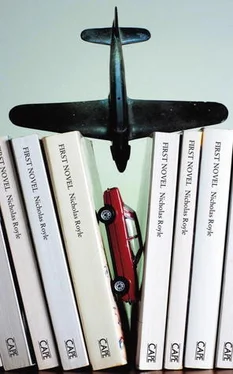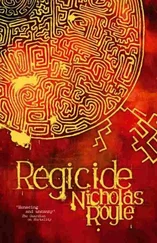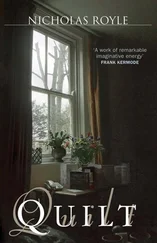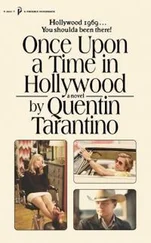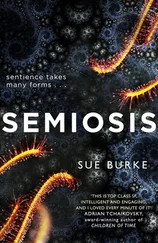As he reaches the point towards the top of the humpback bridge where a path leads down to the trackbed of the former railway line, he turns to confront an approaching crowd of rowdy young people. Maybe he asks them for money or growls unintelligibly at them, but something prompts them to gather around him. I am unable for a few moments to see clearly what is happening, but soon I realise that he is being jostled. He seems to try to edge away from the group down the path to the old railway line and either loses his footing or is pushed and falls over. He rolls once or twice and then I can no longer see him.
In what resembles the protective gesture of a threatened organism, the group of young people closes in. They form a huddle, from which one and then two members abruptly break out, leaving the group. Others depart and soon there’s only one person standing at the head of the path, peering down into the undergrowth. After a moment, this person also leaves.
During the incident, which is over in less than a minute, no one else has crossed the bridge. A dog trots by off its lead, its owner nowhere to be seen.
I continue to watch the road and the humpback bridge, but there is no sign of Overcoat Man emerging from the bushes that border the path.
I look at the backs of the houses in the next street. A light has come on in one of the flats. A man fills a kettle at a sink in a first-floor kitchen.
I continue to stand at the window as the sky above the houses turns a deeper blue and the lights in the windows glow more brightly and the gardens below fall into deeper and deeper shadow.
Tuesday morning, just after eleven o’clock. I am sitting in my office at the university. None of my three colleagues is in. This is deliberate. We choose our office hours so that they do not overlap. It is not good to be talking to a student about his or her creative writing while a colleague sits listening — trying not to perhaps, but listening all the same — just the other side of the room-divider. It is not good from the student’s point of view, as writing can be a personal thing, and nor is it good from your own, since your colleagues might find it impossible not to judge your performance as a teacher.
On the desk in front of me is a PC, switched off. When I need a machine, I bring in my own. The PC is cumbersome, clunky, slow. I have moved the keyboard out of the way next to the printer, which is also redundant. These items of hardware occupy the left side of the desk. On the right-hand side are two books — Jane Solomon’s Hotel 167 and Sylvia Plath’s The Bell Jar , both first novels, which I am intending to read in the next few days, the latter for the first time — and a small, neat pile of newspaper cuttings.
There is nothing else on the desk, no clutter.
The newspaper cuttings are all single pages from the review section of a national broadsheet. They are part of a series called Writers’ Rooms in which a half-page photograph of an author’s office, study or workroom is accompanied by a sidebar of copy written by the featured writer. I take the top one off the pile.
It is the turn of Scottish novelist Andrew O’Hagan. In the foreground is a comfortable-looking armchair, a newspaper draped over one arm. The position of the armchair traps an open door against the wall. Hanging on the door, on the side of the door that would be outside the room if the door were closed, is a blackboard. Both these details suggest the door is, in fact, never closed. Maybe any other members of the O’Hagan household are on instructions not to enter, since a comment — ‘The laptop is there for work but it’s not online because I hate the idea of some boring email popping up while I’m trying to fix a paragraph’ — suggests he does not like to be interrupted. On the blackboard is a chalked reminder: ‘Tuesday: Burns essays.’
I picture O’Hagan bent over a pile of manuscripts in a back garden somewhere in north London, striking a match.
There is a knock on the door — my door, the office door, not O’Hagan’s. I get up and walk around the desk, slip between two of the room-dividers and cross the office to open the door, which cannot be opened from the outside unless you know the code.
‘Hello,’ I say to the student who is standing there.
Her name is Grace, I think. I see a lot of students, hear a lot of names.
‘Hiya.’ Her voice is slightly uncertain and her eyes look everywhere but at mine. With her dyed black hair and pale skin, she has the androgynous look of an emo kid or a goth. ‘It’s Grace. I’m in your First Novels class.’
‘I know,’ I say. ‘I remember. Come in.’
We sit with my desk between us, and she still doesn’t look at me, until I briefly turn away and then I am peripherally aware of her gaze momentarily settling on me.
‘What did you want to see me about, Grace?’ I ask.
‘The… er… First Novels class.’
‘Yes?’
‘I’m having trouble finding copies of some of the books on the list.’
‘Maybe you weren’t at the introductory session,’ I say. ‘I explained then that a number of these titles are out of print but that in most cases second-hand copies are easily available from online booksellers or second-hand bookshops, where they still exist.’
‘Right,’ she says, looking at the two books on my desk. ‘I managed to find this actually,’ she adds, pointing to The Bell Jar . ‘But it looks different.’
‘This is an old copy,’ I tell her. ‘Second-hand. But The Bell Jar is in print. The Jane Solomon is not in print, but you can pick up copies online very cheaply.’
She nods, looking at the floor.
‘Was there anything else?’
‘I can’t remember,’ she says. ‘I mean, yes, there was, but I can’t remember what it was.’
‘Email me when you remember.’
‘My Internet connection is down. Can I call you?’
‘OK.’ I look at my Spartan desk. ‘I don’t have anything to write my number on.’
She rummages in her pockets and comes up empty-handed. From her bag she produces a dog-eared five-pound note and a pen. I dictate the number and she writes it on the banknote.
I see her to the door. The cutting I had been looking at is still sitting in the middle of my desk. I pick it up again.
O’Hagan’s desk is old, square, solid, four drawers either side, two in the middle. He claims it came from a Victorian lawyers’ office in Doughty Street, next door to Dickens’ house, and it may well have done but it looks identical to that of Antonia Fraser, previously featured in the same slot. Behind the desk is a bookcase with glazed doors full of volumes the uniformity of which suggests they are copies of O’Hagan’s own titles. Between the armchair and the desk is a small three-shelf bookcase of the type that tips books at an angle, but the spines are too far away to be legible. Closer to the camera, an urn sits on the floor next to the armchair. Three books sit on top of it in a neat little pile, clearly the books O’Hagan was last looking at as he sat relaxing, but they cannot quite be made out. All I can say with any certainty is that none is a trade paperback with an orange spine and black lettering.
After the workshop I head straight for home. I stand at the window of my study and look down across the back gardens of the houses in the next street towards the humpback bridge over the dismantled railway line. I think about the incident involving Overcoat Man and the crowd of young people. Is there any doubt in my mind that the piece read out in the workshop was a description of that actual event? Could it not have been an account of a similar incident, perhaps even an imagined one? Was it not simply a generic event easily called to mind or one that could have happened anywhere in the city in the last week? The local papers are full of accounts of happy-slapping incidents.
Читать дальше
